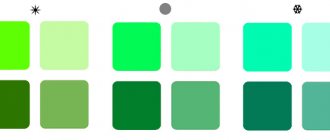The predicate is an integral part of almost any sentence. Regardless of how it is expressed and whether it is expressed in principle, it defines the subject. This member of a sentence can denote both an action and some attribute of an object, and answer various questions (from the banal and well-known “what did you do?” to the more difficult to perceive “which one?”). All this shows that there are different ways of expressing the predicate. So what are they, and what influences the division of predicates into different types?
Simple verb predicate
Let's start, perhaps, with the first type. The simple verb predicate is probably the most common. It is expressed by verbs in any form, namely:
- Verb in any mood (I will talk to him about this. I would go, but I can’t. Come in!)
- Infinitive (My duty is to survive)
- A verb in combination with any particle (Let's go to the Caucasus!)
- Phraseologism (And he beats around the bush again)
- Interjections that denote action (And he grabs my hand like that).
How can a simple verb predicate be expressed?
In a sentence, a simple verbal predicate can be expressed by any verb in any form, that is, in the form of any mood, any tense, any person and number.
But not the infinitive! An infinitive (indefinite form of a verb) CANNOT be a simple verbal predicate.
The infinitive cannot express a grammatical meaning, that is why it is an indefinite form, therefore it cannot play the role of a predicate on its own, without auxiliary words. But you need to be careful: after all, the compound future tense also consists of the verb “to be” in the required form and the infinitive, and this is entirely one simple verbal predicate. But there is no contradiction here, because two words of a compound future are the meaning of one verb, it can be replaced by one synonym of the perfect form: I will read - I will read, I will speak - I will say, etc.
So, a simple verbal predicate can be expressed in different forms of one verb:
- Indicative mood in any tense, any person, number and gender;
- Imperative mood in any form, including compound (let them tell, etc.);
- Conventional mood also in any form.
In theory, formative particles are part of the verb form, so they are most often emphasized together with the predicate; in this case, too, two words may be underlined, and the predicate is a simple verb. It's just a compound form of the verb.
Simple verb predicate - nuances
There are certain nuances here. Very often, the future tense of the indicative mood is not perceived as a simple verbal predicate - it also consists of two words. But this would be the same mistake as not considering PGS (this is how the name of this type of predicate is abbreviated) as a verb in combination with a particle.
Another controversial point is the distinction between a phraseological unit (although it would be more accurate to say a non-free phrase) and a compound nominal predicate. The first is easily replaced by a single verb (We were given an order - We were ordered. Why did you hang your head? - Why are you sad?), whereas with a compound nominal predicate such a trick will not work, the only thing is that you can replace the linking verb with the word “was” (He sat sad - He was sad).
Features of a simple verbal predicate
In Russian syntax, there are usually three types of predicates; Schoolchildren study this material in 8th grade. To compare them, look at the samples in the table.
| Simple verb | Compound verb | Compound nominal |
| I'm drawing | I can draw | I am an artist |
| I am having fun | I want to have fun | I'm cheerful |
As you can see from the samples, a simple verbal predicate is indeed simple - it consists of one verb.
It must be remembered that in the Russian verb system there is a compound form of the future tense from an imperfective verb - I will teach, I will speak, etc. It's one verb, just in compound form. The predicate is a simple verb.
In a simple verbal predicate, both semantic and grammatical roles are performed by one word - a verb in any personal form.
A predicate of this type can be found in both two-part and one-part sentences of any type, except for denominative ones.
Compound verb predicate
Let's move on to the next type of predicate - a compound verb. Here everything is as simple as in the simple one - there is an auxiliary verb, and an infinitive is attached to it (He wanted to study). The only nuance in this case is the clear highlighting of this very auxiliary verb, because it can be represented not only by it:
- Phrasal verbs of the beginning and end of an action (Stopped bickering / Started to act)
- Modal verbs of intention, ability, will, desire (We were going to visit. I can run. I wish to be free. I want to escape)
- Verbs of emotions (I'm afraid of falling in love. I hate lying)
- Some impersonal verbs (Worth noticing. Worth thinking about)
- Short adjectives, the full form of which is either completely absent or has a different meaning (Glad to meet you. Happy to invent. We are free to choose)
- Some nouns (Master of lies. Lover of walking)
- It is possible and it is not possible (It can be noted. It cannot be denied)
- Phraseologism (Burns with the desire to come)
Methods of expressing the predicate with examples are the best way to understand this, albeit not very confusing, but still voluminous topic. The main thing in a compound nominal predicate is to understand the mechanism of its formation. This is a verb (or something that replaces it) plus an infinitive. Believe this formula and you will succeed.
Russian language lesson in 8th grade “Predicate and ways of expressing it”
Development of a lesson in the Russian language in grade 8 on the topic “Predicate and ways of expressing it”
Lesson type
– a lesson in learning new material
Lesson type
– combined.
Lesson objectives:
Formation of orthoepic and syntactic skills;
generalization of information about the predicate, familiar to students in the course of grades V-VII;
familiarization with different types of predicates;
formation of skills: find the predicate, determine the form of the predicate;
developing the ability to perform complex text analysis;
nurturing respect for a friend, self-respect, accuracy.
Equipment:
presentation
,
Notebook program, cards, textbook.
During the classes
I.Organizational moment.
Read the topic of the lesson and formulate the purpose of the lesson. The teacher encourages students to work positively in the lesson. (slide No. 3)
II.Repetition .
Syntactic warm-up. Students work in the Notebook program.
Insert the missing letters, open the brackets, place punctuation marks, underline the main and minor parts of the sentence, parse 1 sentence.
From each city horizon we went (to) far distances. And along them, either (singly) or in (small) circles, loaded dump trucks crawled. The cars had difficulty getting out of the camp. The M. tors hummed and roared obnoxiously (in) discord.
The boom of the excavator floated (to) the right (to) the top and it became even more convenient to observe.
(S)oon the hum of our excavator's boat remained somewhere (behind) and (from) below from the ground everything grew and multiplied and new sounds began to pour in.
III . Orthoepic warm-up
Add emphasis (emphasis is placed in the Notebook program, and checked in the presentation on slide No. 5)
Cakes, beets, rings, turn on, quarter, agreement, catalog, intention, provision, cottage cheese, expert, wholesale, accept, began, encourage, seal, phenomenon, petition, nursery.
V.Repetition . What is a predicate. (Slide No. 6)
Using the diagram, talk about the predicate.
VI.Work on the topic of the lesson
(
students work in the Notebook program, identify predicates and, depending on their characteristics, divide them into groups)
Let's watch. Find the predicates in these sentences and divide the given sentences into groups based on the types of predicates.
Winter came. My dad was an agronomist. Soon leaves began to appear on the trees. The students went to school. The forest is very good in spring. Misha decided to learn a poem instead of a song.
— How many groups of predicates did you get?
— In which sentences does the predicate consist of only one verb?
-In which sentences does the predicate consist of two verbs?
-In which sentences does the predicate consist of nominal parts of speech?
(the diagram is drawn up in the Notebook program).
Using the diagram we have obtained, tell us about the types of predicates.
Read the rule in the textbook and say what else you learned about the predicate and how to express it.
VII . Consolidation of the studied material.
- Test “Determine the type of predicate” (students work in the Notebook program, underline the predicate, determine its type, justify their answer)
In the evening, they began to dive into the snow from the tall birches of Teterev
Without pack animals we could not set off.
The professor was visibly agitated.
Directors of enterprises came here
The path here is laid along the ridges on the right side of the valley.
2. Game "Third is a wheel". (students work in the Notebook program, underline the predicate, determine its type, find the “extra” sentence, justify their answer)
A. The copper trunk of the pine tree turned pink in the sun. The path was crowded with people. The ship was very large and very strong.
B. The sun began to warm the earth. The forest is our wealth. We began to climb the mountains.
VIII. Reflection. Students are given cards:
- Did I like the lesson...
- What I liked about the lesson...
- What I didn't like about the lesson...
- How I performed in class...
- Did I understand the topic of the lesson...
Verb linkage
A compound nominal predicate includes two parts - a verbal connective and a nominal part. Separately, it should be noted that if we are talking about the present tense, then the verb connective can be omitted (He is beautiful). The verb connective is most often represented:
- The verb “to be” in any of its forms. This is the so-called abstract connective, which can sometimes be replaced in the present tense by the form “is” or be absent altogether. (After all, you were young and hot. He is my enemy. The air is fresh and cool)
- Verbs whose lexical meaning is somewhat weakened - semi-abstract connectives. That is, they cannot exist without any addition (He was considered a snob. You will be called sister), since they do not have sufficient lexical, so to speak, force.
- Independent verbs, which in principle can be free predicates, but in this case serve to concretize the author’s thought (He stood abandoned by everyone. It’s not easy to return home).
Yes, sometimes it is very difficult to identify an independent predicate with secondary members. A short test “Ways of expressing a predicate” will help us understand at least a little about this difficult topic.
- What's the point of wandering around here! “It’s pointless to wander through the parks.”
- Lie motionless on the hill. – How long can you lie here?!
- He could live as an ascetic, wanting nothing. - How are you going to live here?
These sentences present different ways of expressing the predicate, try to figure out what types of predicate are presented in each sentence.
Complex cases of expressing a simple verbal predicate
1. An infinitive without a connective is used as a simple verbal predicate, for example:
People plow, and we wave our hands (proverb).
2. A simple verbal predicate is expressed by a verb with various particles (know to yourself, as if, exactly, as if, as if, slightly, was, etc.)
There was no longer a strong smell in the air. It was as if dampness was spreading inside him again (I. Turgenev).
The resinous pine seemed to be crying, shedding amber tears.
Then go for a walk.
And you know he’s chattering... (The Strugatsky Brothers. Picnic on the side of the road).
We met, but we didn’t manage to talk.
Tormented by boredom, the old woman went home...
3. Phraseologisms act as ASG:
So they racked their brains about how to clear themselves of accusations of setting the city on fire (Henrik Sienkiewicz).
In almost every hut someone was breathing their last (Vladislav Reymont. Men).
Humanity is going crazy (Yu. Levitansky).
Maxim is graduating from the infantry school and will serve in the army (Anatoly Rybakov. Children of Arbat).
My friend doesn't waste words.
4. A simple verbal predicate is formed by syntactically indivisible phrases consisting of a verb that does not have an independent lexical meaning and a noun that expresses the meaning of the predicate. Such combinations can be replaced with a single-root verb in the appropriate grammatical form, for example:
- took part - participated;
- provided assistance - helped;
- won - won;
- will make a promise - will promise;
- if I reproach you, I will reproach you;
- I'll take a look; I'll take a look;
- we make repairs - we repair;
- will conduct preparations - prepare;
- summed up - summed up;
- to dislike - to dislike;
- receive - receive;
- gave consent - agreed.
Deputies held a vote yesterday (voted).
This thought horrified her (terrified her).
Suboch found out everything and became furious (furious) (K. Paustovsky).
5. A simple verbal predicate is a conjugated verb form with repetition:
They live and live and know no grief.
I read and read, but I can’t understand anything.
6. A simple verbal predicate is an interjection in the role of an indicative verb
The Monkey, seeing his image in the Mirror, quietly nudged the Bear with his foot (I. A. Krylov).
The dog was catching frogs along the shore, and the pike was grabbing her by the leg! (Eduard Verkin).
There is a goat at the top - and everything beats and beats with a silver hoof, and stones fall and fall. Suddenly Muryonka jumped there (P.P. Bazhov. Silver hoof).
And the diligent woodpecker does everything here and there (Yu. Levitansky).
7. Simple verbal predicate - infinitive as an indicative verb
He will beat you (will beat you), and you stand your ground (V. Sleptsov).
Then I screamed (screamed), and water poured into my mouth (M. Sholokhov).
8. A simple verbal predicate is expressed by a combination of two verbs in one form
I'll go ask when the concert starts.
I’ll go tell him... Let him bring some firewood.
I'll go make arrangements for lunch.
9. In the role of PGS, a combination of a verb with the particle “not” and an infinitive is used
You can’t get to that forest wilderness, but you can only get there on foot.
Nominal part
We continue the topic “Compound nominal predicate” by studying its nominal part. It can be expressed:
- Noun (Was an actress)
- The adjective in all its forms - short and full, degrees of comparison (We are very glad to see you. Perfect voice).
- Communion in all its forms - also short and full and also passive and active (The book has been read. The young man is reading)
- Pronoun (The sky is yours)
- By a numeral name and any combination with numbers (Seven five - thirty-five. The height of the building is two hundred meters)
- Adverb (I am a little akin to her)
- Interjection (Your thoughts are on guard!)
- Phraseologism and non-free phrases (His soul is a secret for me with seven seals)
As you can see, the ways of expressing the predicate vary enormously - if there is nothing really to remember in a simple verb, then you will have to tinker with a compound nominal. But with the proper desire, everything will be fine.


